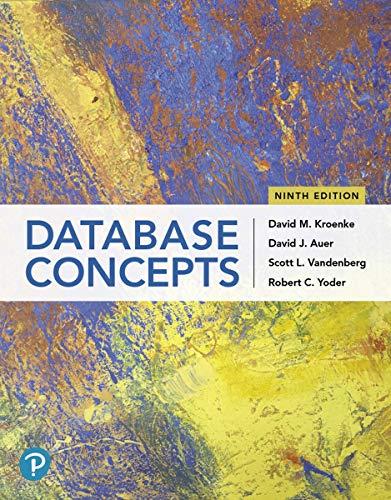Question
Question: Estimate the probabilities of finding two messages with the same MD5 checksum, given total numbers of messages of 263, 264, and 265. Hint: This
Question: Estimate the probabilities of finding two messages with the same MD5 checksum, given total numbers of messages of 263, 264, and 265.
Hint: This is the Birthday Problem again, as in Exercise 48 in Chapter 2, and again the probability that the k +1th message has a different checksum from each of the preceding k is 1?k/2128. However, the approximation in the hint there for simplifying the product fails rather badly now. So, instead, take the log of each side and use the approximation log(1?k/2128) ? ?k/2128.
Hint Question:
Suppose Ethernet physical addresses are chosen at random (using true random bits).
(a) What is the probability that on a 1024-host network, two addresses will be the same?
(b) What is the probability that the above event will occur on one or more of 220 networks?
(c) What is the probability that, of the 230 hosts in all the networks of (b), some pair has the same address?
Hint: The calculation for (a) and (c) is a variant of that used in solving the so-called Birthday Problem: Given N people, what is the probability that two of their birthdays (addresses) will be the same? The second person has probability 1? 1/365 of having a different birthday from the first, the third has probability 1?2/365 of having a different birthday from the first two, and so on. The probability that all birthdays are different is thus
(1? 1) (1? 2) ? ? ? (1? N ?1)
-- -- ----
365 365 365
which for smallish N is about
1? 1+2+? ? ?+ (N ?1)
------------------------------
365
Step by Step Solution
There are 3 Steps involved in it
Step: 1

Get Instant Access to Expert-Tailored Solutions
See step-by-step solutions with expert insights and AI powered tools for academic success
Step: 2

Step: 3

Ace Your Homework with AI
Get the answers you need in no time with our AI-driven, step-by-step assistance
Get Started


